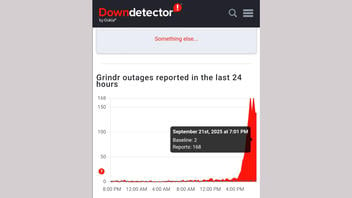
Did the servers for gay dating app Grindr in Phoenix or Glendale have problems handling increased traffic related to Charlie Kirk's memorial service in Arizona on September 21, 2025? No, that's not true: A website named Downdetector did show an increase in outage reports around that time but according to their methodology the graphs on the service are at least partially based on unvetted user reports and social media posts. A spokesperson for Grindr told Lead Stories they had no actual reports of outages on that date and their status page did not show any either.
An example of the claim appeared in a viral post on X (archived here) published on September 22, 2025. It read:
WOW. Look at Grindr in Phoenix and Glendale, Arizona! The servers can't handle it, it's the Charlie Kirk effect.
Along with that text it contained the following images:
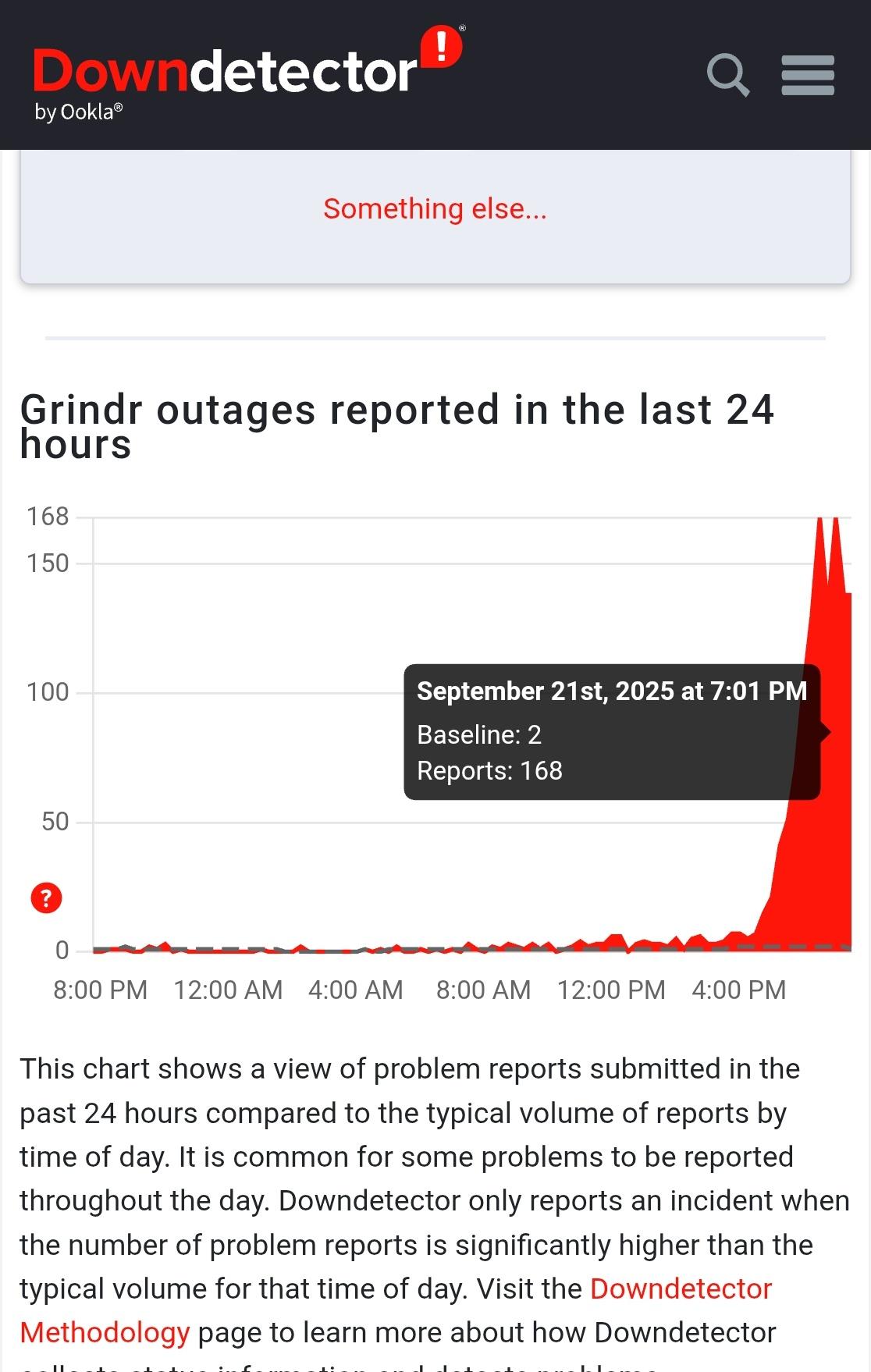
(Image source: post by @TheRealThelmaJ1 on x.com.)
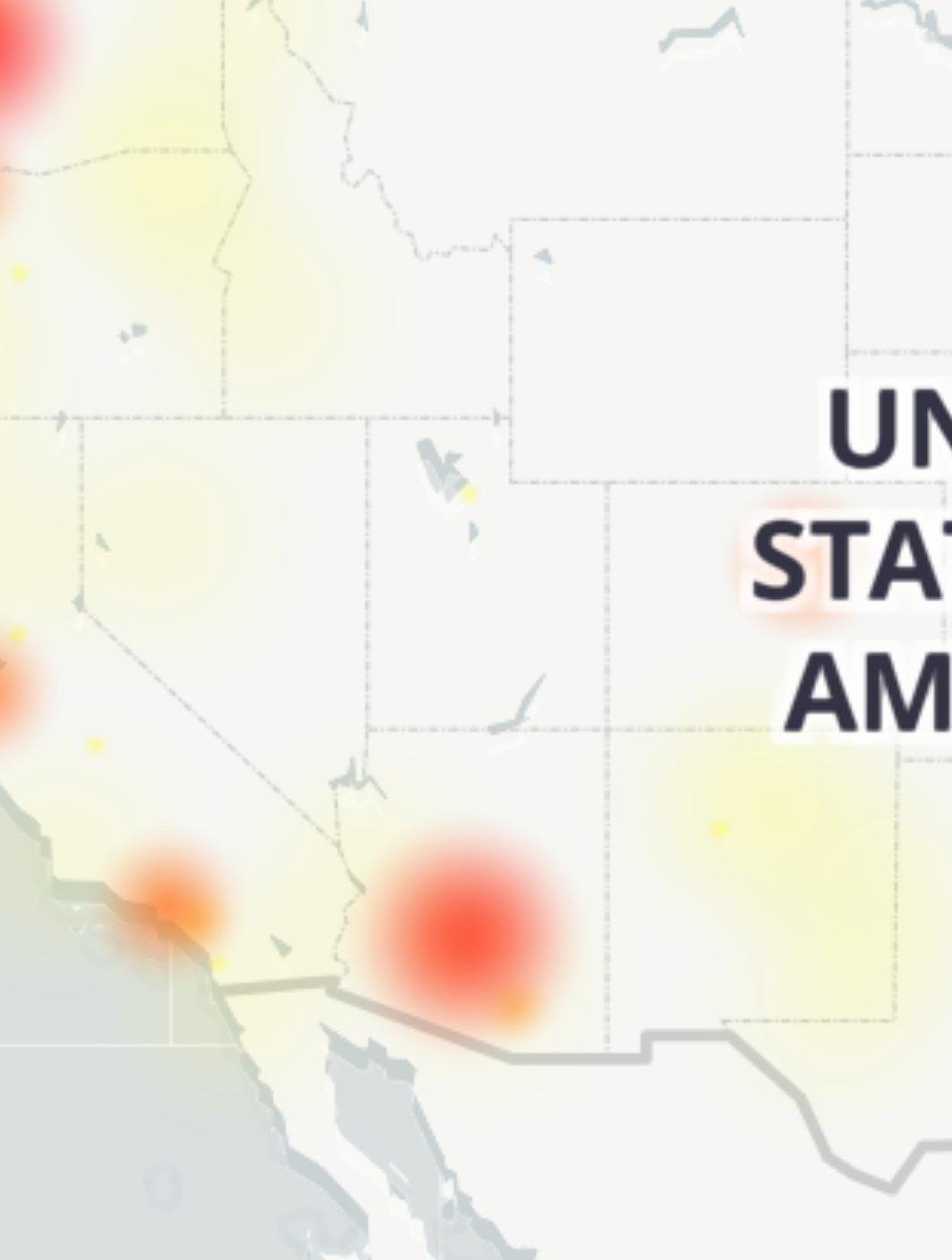
(Image source: post by @TheRealThelmaJ1 on x.com.)
Downdetector (archived here) is a website that says it does "Real-time problem & outage monitoring" and "We tell you when your favorite services are down or having problems."
According to the page on their website that explains their methodology (archived here), they rely on the following information to determine if there is a problem at a service:
Problem reports
Users can submit problem reports directly on a company status page on Downdetector, along with an indicator of the type of problem they are experiencingSocial media
Downdetector gathers data about the status of a service through X and uses sentiment analysis to detect issues for a given company and locationOther sources
Downdetector also looks at other key indicators from across the web to determine if an extraordinary volume of users is having issues with a monitored company or service
(highlight by Lead Stories)
They also say they use a "baseline" to determine if there is an incident.
How Downdetector determines if there's an incident
A small number of users reporting a problem does not constitute a large-scale incident. To make sure that incidents are correctly represented, Downdetector calculates a baseline volume of typical problem reports for each service monitored, based on the average number of reports for that given time of day, measured over the previous year. Downdetector only reports an incident when the number of problem reports is significantly higher than the baseline.
According to the image and to the current status they are reporting for Grindr (archived here) that baseline is 2. So it wouldn't take very many reports to cause Downdetector to declare an incident.
Through X's public search function, Lead Stories reviewed posts on X made between September 21 and 22 mentioning "Arizona" and "Grindr" (archived here). The earliest posts are all speculating or joking about increased use of the service in Arizona:
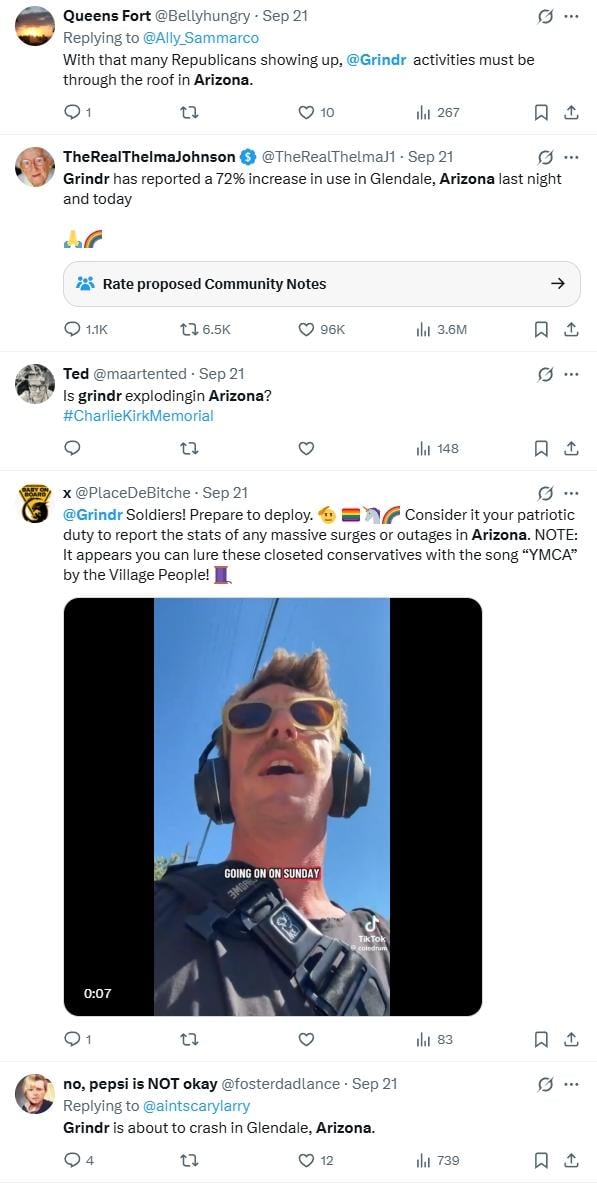
(Image source: screenshot of oldest x.com search results for "Arizona" and "Grindr" between September 21-22, 2025.)
After that, the posts kept on coming:
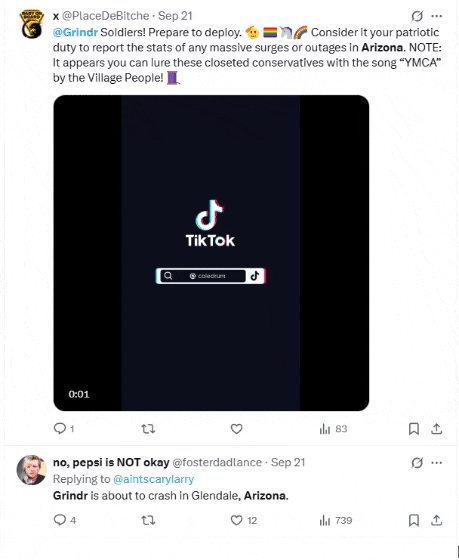
(Image source: animation of x.com search results for "Arizona" and "Grindr" between September 21-22, 2025.)
Grindr maintains a status page that documents outages and problems and it listed none for the date in question (archived here).
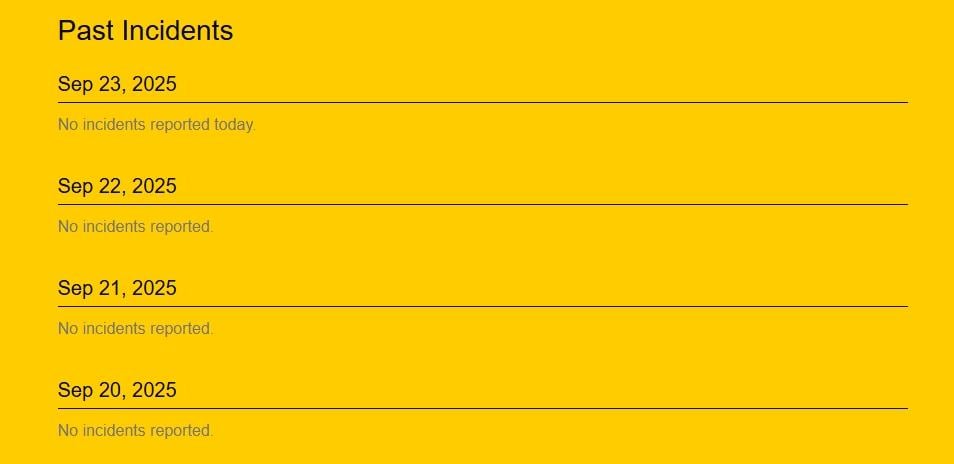
(Image source: screenshot of Grindr's status page.)
A spokesperson for Grindr confirmed this in an email:
As noted on Grindr's status page, there were no outage reports on September 21.
Lead Stories also reached out to Ookla, the company behind Downdetector, and they told us they would get back to us later. This story will be updated when further reply is received.












